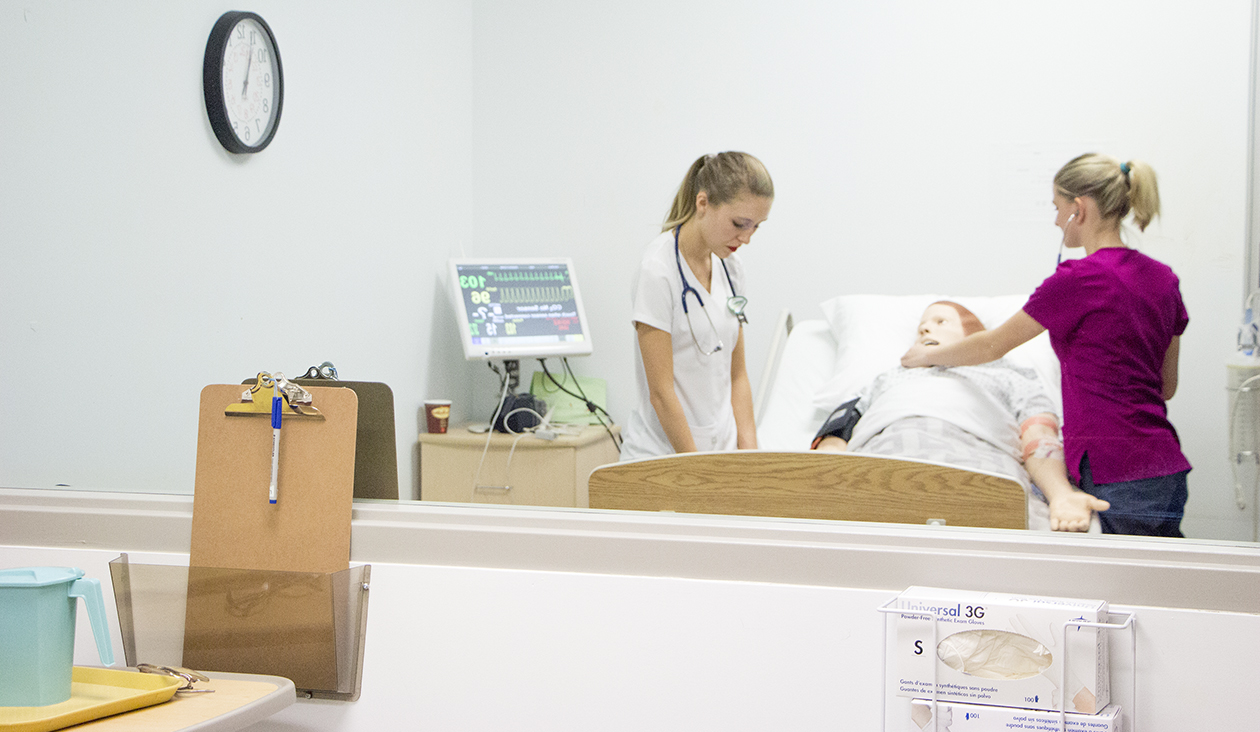Replicating real-life scenarios in a simulated environment is a relatively new practice in nursing education — relatively new, considering the long history of the nursing profession.
Advances in technology have resulted in lifelike manikins that allow for new ways to teach skills, techniques, communication, problem solving and critical thinking in a controlled environment.
Creating a demand for simulation research in health care education.
A new study will focus on self, peer and faculty evaluation of students’ health communication skills within simulation experiences
“Research studies related to simulation in nursing education add to our understanding of how students learn in this environment,” says Lee-Anne Jackson, UFV Nursing faculty member working on the multisite research study.
“Communication is an important skill for student nurses to learn, as such we need to know how best to evaluate this skill during a simulated experience.”
The focus of the study is to determine the effectiveness of the tools that are currently used to evaluate health communication skills. The evaluation tool in this study is the Global Interprofessional Therapeutic Communication Scale (GITCS).
Leading the collaborative research study is Suzanne Campbell, Director and Associate Professor, UBC Nursing School. The study is a collaboration with researchers from nine BC universities/colleges: BCIT, Douglas College, Langara, University of the Fraser Valley, University of Victoria, UBC-O, Vancouver Community College, Kwantlen Polytechnic University and UBC-V.
At UFV, Lee-Anne Jackson and Arlene Haley from the School of Health Studies will be collecting simulation data that will be analyzed along with the data from other BC Nursing Schools.
The use of simulation allows for researchers to present a variety of scenarios within a controlled environment that emphasizes specific skill development — like communication.
Following simulation exercises, the GITCS will be completed by students and faculty resulting in self, peer, and instructor assessments. Evaluations from multiple research sites will help determine whether GITCS is an effective tool, along with feedback for improvements.
The official title of this multisite research project is: Self, peer and faculty evaluation of students’ health communication skills: a pilot study of nursing students in British Columbia using the Global Interprofessional Therapeutic Communication Scale (GITCS) in simulation modules.
For more information, please contact Lee-Anne Jackson or Arlene Haley.

